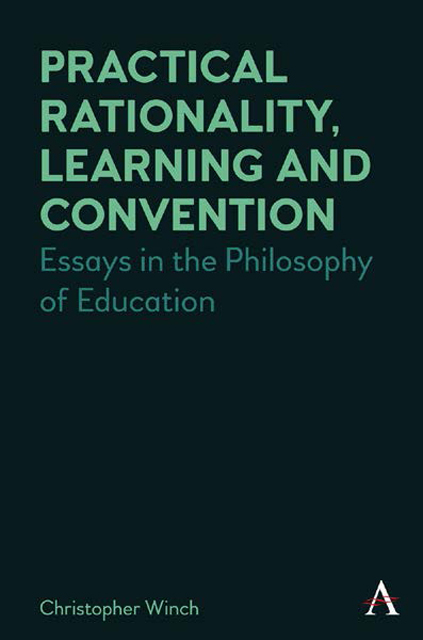Chapter Eleven - Applied Theoretical Knowledge and Professional and Vocational Education: Informed Know-How in a Non-Intellectualist Framework
Published online by Cambridge University Press: 09 December 2022
Summary
Introduction
In many places and for many occupations it is a commonplace truth that successful professional practice involves the application of theoretical knowledge to professional action. More contentious is the availability of a good account of how this happens and what kind of education is needed to prepare individuals for such practice. A substantial part of this problem is the development of an adequate conceptual framework for thinking about these issues and devising curricula, assessment procedures and pedagogy on that basis. To simplify somewhat, there are two dominant approaches to the issue, opposed to each other. The first, entitled ‘Intellectualism’ maintains that all action is at bottom mental (in a broad sense) and, as such, involves the manipulation of propositions, which then, somehow results in behaviour. The rival view ‘Anti-intellectualism’ maintains that not all action is mental and that know-how is a distinct capacity from knowledge of propositions. Anti-intellectualists tend to discount the role of theory in successful practice and also tend to discount the role of explicit judgement in formulating and carrying out appropriate courses of action. Intellectualism fails to provide a satisfactory account of know-how and anti-intellectualism fails to provide a satisfactory account of how theory and explicit judgement play a central role in professional action.
In this paper I make three claims:
I. A coherent and practically useful account of theoretically informed professional practice is available.
II. Both Intellectualism and Anti-intellectualism as philosophical doctrines are poorly placed to provide such an account.
III. A good account can provide the basis for both understanding and creating curricula suitable for professional preparation.
I call the account that I propose ‘non-intellectualist’ because it rejects the intellectualist-non-intellectualist dichotomy. It maintains that the different elements of our epistemic capacities, described respectively as knowledge that, know-how and knowledge by acquaintance, are distinct but closely related and that successful professional practice requires that all be mobilised. I will show how this account applies to the construction and evaluation of professional curricula and pedagogies.
Ryle's Attack on Cartesian Intellectualism
We start with a problem about judgement identified by Ryle (1949).
- Type
- Chapter
- Information
- Practical Rationality, Learning and ConventionEssays in the Philosophy of Education, pp. 153 - 166Publisher: Anthem PressPrint publication year: 2022



